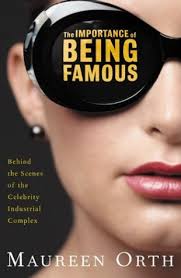http://www.opinionjournal.com/editorial/feature.html?id=110006479
REVIEW & OUTLOOK
Smells Like Beltway The real reason Tom DeLay is in political trouble.
Monday, March 28, 2005 12:01 a.m. EST
By now you have surely read about House Majority Leader Tom DeLay's ethics troubles.
Probably, too, you aren't entirely clear as to what those troubles are--something to do with questionable junkets, Indian casino money, funny business on the House Ethics Committee, stuff down in Texas. In Beltway-speak, what this means is that Mr. DeLay has an "odor": nothing too incriminating, nothing actually criminal, just an unsavory whiff that could have GOP loyalists reaching for the political Glade if it gets any worse.
The Beltway wisdom is right. Mr. DeLay does have odor issues. Increasingly, he smells just like the Beltway itself.
Here is the abbreviated rap sheet against Mr. DeLay. First, we have the imbroglio with the House Ethics Committee, which last year rebuked him on three occasions. Among his sins: He offered to endorse outgoing Representative Nick Smith's son in a GOP primary if Mr. Smith would vote "yes" on the Medicare prescription-drug bill. (Mr. Smith declined the offer; his son lost the primary.) Mr. DeLay has since changed Committee rules so that it can no longer launch investigations on a party-line basis, and by packing the Committee with loyalists.
Next, there is the Texas business. Ronnie Earle, the district attorney for Travis County (which contains Austin), last year indicted three DeLay associates involved in his Texans for a Republican Majority political action committee for money laundering and illegal campaign contributions. Mr. Earle also will not rule out a possible indictment of Mr. DeLay himself.
Mr. Earle, a partisan Democrat, has a record of making suspect accusations: In 1993, he indicted newly elected Senator Kay Bailey Hutchison on evidence so weak the case was never brought to trial. The indictments of Mr. DeLay's associates came just six weeks before November's elections; Mr. Earle's primary aim, it seemed, was to derail Mr. DeLay's ultimately successful efforts to achieve the first Republican majority in the Texas delegation to the U.S. House since Reconstruction. Still, the "odor" stuck; last year Mr. DeLay had to fend off a stiff challenge from a complete unknown to keep what otherwise would have been his safe seat.
Finally, there are the junkets, three in particular. In December 1997, Mr. DeLay visited the Northern Marianas Islands in the company of lobbyist pal Jack Abramoff, now under investigation by the Senate Finance Committee, who just happened to be representing the garment industry there. Mr. DeLay later led a legislative effort to extend the Islands' exemption from U.S. immigration and labor laws.In May 2000, Messrs. DeLay and Abramoff took a $70,000 trip to the U.K. (including a golf outing to the St. Andrews course in Scotland) in the company of two House colleagues and some staff and spouses. Depending on which account you believe, Mr. DeLay's expenses were picked up either by an outfit called the National Center for Public Policy Research, on whose board Mr. Abramoff then sat, or by Mr. Abramoff directly, who later charged the trip to his clients, the gambling Mississippi Choctaw nation. Under House rules, members are not allowed to have their travel expenses covered by a lobbyist.
In August 2001, Mr. DeLay and several House colleagues (including four Democrats) visited South Korea on a trip sponsored by the Korea-United States Exchange Council, which has close ties to former DeLay staff chief Ed Buckham and was registered as foreign agent just days before the trip. House rules forbid members from traveling at their expense, but it is unclear whether Mr. DeLay or his colleagues were aware of the Korean Exchange Council's status at the time of their departure.
Taken separately, and on present evidence, none of the latest charges directly touch Mr. DeLay; at worst, they paint a picture of a man who makes enemies by playing political hardball and loses admirers by resorting to politics-as-usual.
'
The problem, rather, is that Mr. DeLay, who rode to power in 1994 on a wave of revulsion at the everyday ways of big government, has become the living exemplar of some of its worst habits.
Mr. DeLay's ties to Mr. Abramoff might be innocent, in a strictly legal sense, but it strains credulity to believe that Mr. DeLay found nothing strange with being included in Mr. Abramoff's lavish junkets.
Nor does it seem very plausible that Mr. DeLay never considered the possibility that the mega-lucrative careers his former staffers Michael Scanlon and Mr. Buckham achieved after leaving his office had something to do with their perceived proximity to him. These people became rich as influence-peddlers in a government in which legislators like Mr. DeLay could make or break fortunes by tinkering with obscure rules and dispensing scads of money to this or that constituency. Rather than buck this system as he promised to do while in the minority, Mr. DeLay has become its undisputed and unapologetic master as Majority Leader.
Whether Mr. DeLay violated the small print of House Ethics or campaign-finance rules is thus largely beside the point. His real fault lies in betraying the broader set of principles that brought him into office, and which, if he continues as before, sooner or later will sweep him out.
###
-











No comments:
Post a Comment